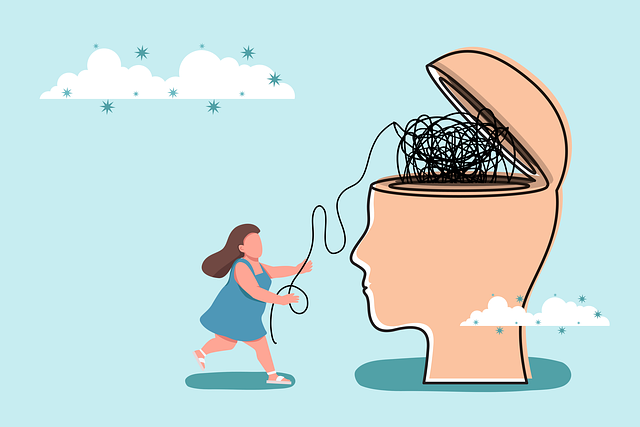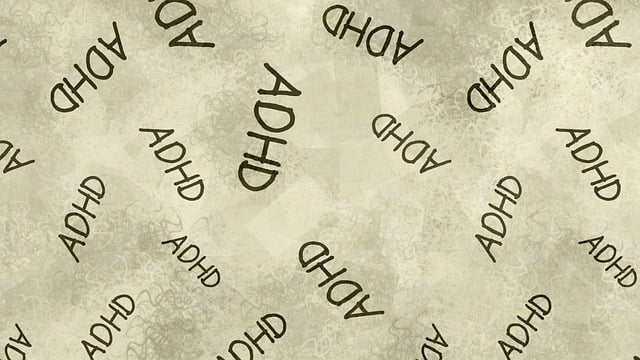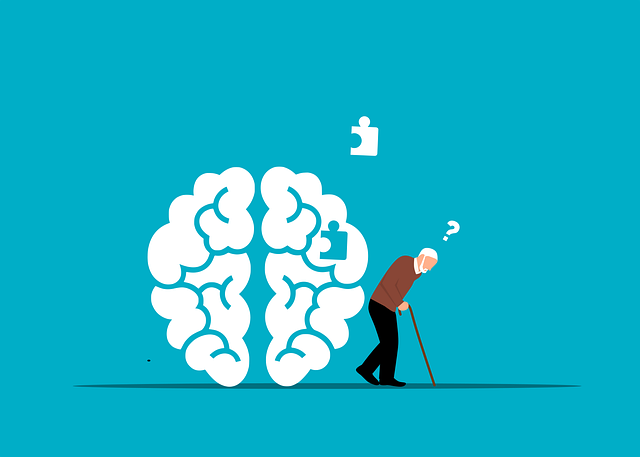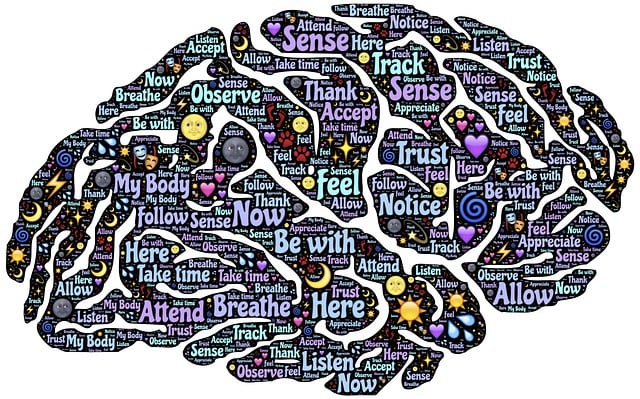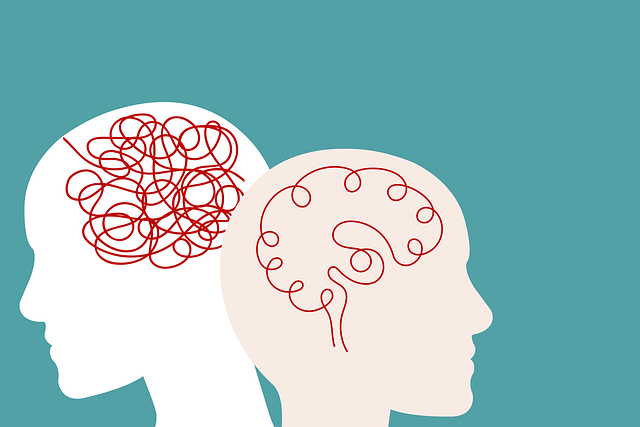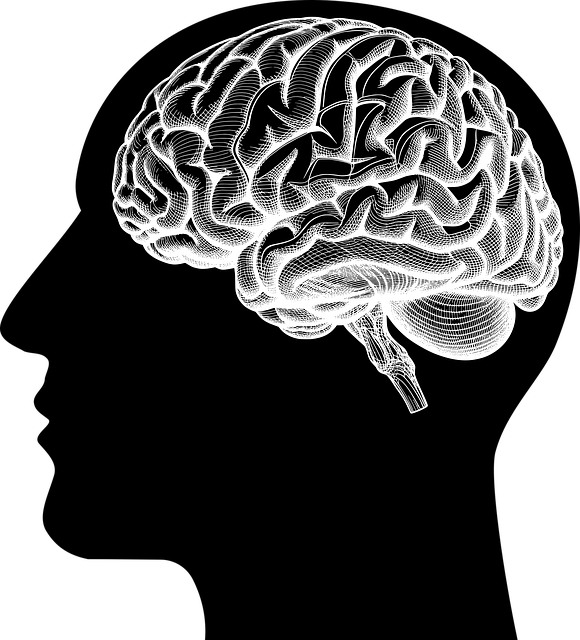In the German-speaking world, addressing adolescent mental health has become a priority due to rising rates of depression and anxiety. Early intervention strategies, including specialized therapy like CBT, DBT, and mindfulness-based interventions, are effective. Stigma reduction efforts create supportive environments, while mood management and risk mitigation planning empower teens with emotional stability tools. Identifying personal needs is crucial for establishing a mental wellness self-care routine, which includes therapy sessions, journaling, exercise, and creative outlets. Integrating therapeutic techniques into daily routines, with cultural sensitivity, contributes to positive outcomes. Long-term strategies involve regular check-ins, coaching programs, and public awareness campaigns to empower teens in managing their mental health.
“Unveiling the path to optimal mental wellness, this comprehensive guide caters specifically to adolescent teens within the German-speaking community. With a focus on self-care, we explore strategies to navigate and thrive in today’s challenges. Understanding adolescent mental health from a German perspective, we empower teens with tools for self-reflection and identification of personal needs. Discover the building blocks of a nurturing routine, incorporating effective therapy techniques for daily integration. Learn long-term wellness strategies for sustaining mental resilience.”
- Understanding Adolescent Mental Health: A German-Speaking Perspective
- Identifying Personal Needs: Self-Reflection for Teens
- Building Blocks of a Self-Care Routine
- Incorporating Therapy Techniques into Daily Life
- Sustaining and Adapting: Long-Term Wellness Strategies
Understanding Adolescent Mental Health: A German-Speaking Perspective

In the German-speaking world, understanding adolescent mental health is a growing priority. Studies show that young people are increasingly affected by mental illnesses, with depression and anxiety disorders being among the most prevalent. This has prompted a shift in focus towards early intervention and prevention strategies. Therapy for adolescent teens plays a pivotal role in this context, offering specialized support tailored to the unique challenges faced by young individuals. German-speaking countries have seen advancements in therapeutic approaches, such as cognitive-behavioral therapy (CBT), dialectical behavior therapy (DBT), and mindfulness-based interventions, which are proven effective in treating various mental health conditions.
Mental illness stigma reduction efforts also form a crucial component of this perspective. By fostering open conversations about mental wellness, schools, communities, and healthcare professionals work together to create supportive environments. Mood management and risk management planning are integral parts of this process, ensuring that adolescents have access to the necessary tools and resources for maintaining emotional stability. These initiatives not only promote better mental health outcomes but also encourage young people to seek help without fear of judgment, thus enhancing their overall well-being.
Identifying Personal Needs: Self-Reflection for Teens

For adolescent teens, especially those speaking German, identifying personal needs is a crucial step in developing a mental wellness self-care routine. Self-reflection becomes a powerful tool to understand one’s emotional landscape and triggers. By engaging in regular therapy sessions tailored for adolescents, young individuals can learn valuable communication strategies that foster open dialogue about their feelings and experiences. This process encourages them to recognize when they need support or specific tools like mindfulness meditation to manage stress and anxiety.
Through self-care practices rooted in the mind over matter principles, teens gain a deeper sense of agency over their mental health. They become equipped with techniques to navigate challenging situations and develop coping mechanisms that work best for them. These include incorporating activities such as journaling, physical exercise, or creative outlets into daily routines, all of which contribute to a holistic approach to well-being.
Building Blocks of a Self-Care Routine

Building a robust mental wellness self-care routine is akin to crafting a personalized therapy plan tailored to an adolescent’s unique needs. For German-speaking teens, this process can be empowering and transformative. The first step involves identifying core activities that promote relaxation, emotional balance, and overall well-being. These may include dedicated time for hobbies, physical exercise, mindfulness practices such as meditation or deep breathing exercises, and engaging in creative outlets like art or music.
Integrating evidence-based stress management techniques, akin to compassion cultivation practices, can be a game-changer. Mental health professionals can guide teens in developing effective risk management planning strategies, ensuring they have tools to navigate life’s challenges. By fostering self-care habits, adolescents gain resilience and the ability to maintain their mental wellness, potentially reducing the need for intensive therapy later in life.
Incorporating Therapy Techniques into Daily Life

Incorporating therapy techniques into daily life can be a powerful tool for adolescent teens, especially those who speak German and are navigating their mental wellness journey. Many therapeutic approaches, such as cognitive-behavioral therapy (CBT) or mindfulness practices, can be easily integrated into routine activities. For instance, journaling can serve as a safe space to reflect on thoughts and emotions, while specific breathing exercises can help manage stress and anxiety throughout the day. This accessibility allows teens to take control of their mental health proactively.
Cultural sensitivity in mental healthcare practice is crucial when tailoring these techniques for German-speaking adolescents. Healthcare provider cultural competency training ensures that therapists understand the unique perspectives and needs of their clients. By incorporating elements from the teen’s cultural background, such as traditional healing practices or community outreach program implementations, therapy becomes more engaging and effective. This holistic approach, combined with a strong therapeutic bond, can significantly contribute to positive mental wellness outcomes for this demographic.
Sustaining and Adapting: Long-Term Wellness Strategies

Sustaining mental wellness requires a dynamic approach that adapts as life stages and circumstances change. For adolescent teens in the German-speaking world, integrating therapy into their self-care routines can prove invaluable. Many young individuals face unique pressures, such as academic demands, social dynamics, and identity formation, which can contribute to stress and anxiety. Therefore, long-term wellness strategies should involve regular check-ins with mental health professionals who specialize in teenage issues.
Through ongoing therapy, adolescents can develop adaptive coping mechanisms tailored to their needs. These strategies may include mindfulness practices, cognitive reframing techniques, or creative outlets that foster emotional expression. As teens mature, the focus might shift towards Mental Wellness Coaching Programs Development, encouraging them to take ownership of their mental health. Public Awareness Campaigns Development can also play a pivotal role in normalizing conversations about depression prevention, ensuring that young people have access to support systems and resources when facing challenges.
The development of a mental wellness self-care routine is a transformative journey, especially for adolescent teens navigating life’s challenges. By understanding the unique perspective on mental health in the German-speaking world and incorporating tailored strategies, young individuals can enhance their resilience. Through self-reflection, identifying personal needs, and building a solid foundation with therapy techniques, teens can create a sustainable routine that promotes long-term wellness. This approach, coupled with professional support, specifically targeted at German-speaking adolescents, ensures they receive the necessary care and guidance for a healthier, happier future.

